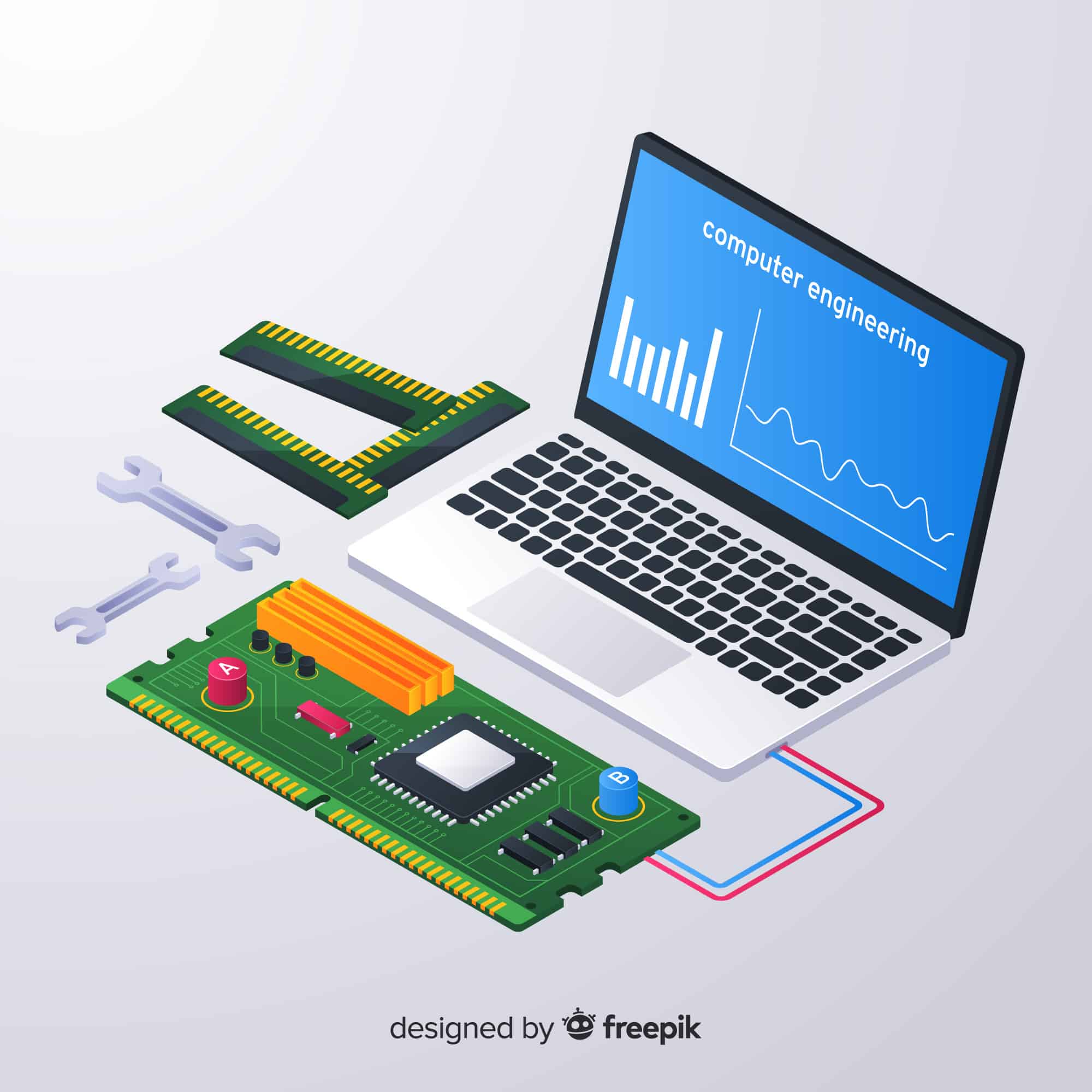Why SSD-Powered laptop Are Essential in 2025: Best Cheap Models Under ₹35,000

The SSD Revolution in Budget Laptops
Evolution of Storage Technology from HDD to SSD in Budget Segments
Over the past decade, we’ve seen a significant shift in laptop storage technology, moving from traditional Hard Disk Drives (HDDs) to Solid State Drives (SSDs). In the early 2010s, most budget laptops relied on HDDs due to their lower cost per gigabyte. However, as SSD prices have decreased and their performance benefits have become clear, they have increasingly become the dominant storage solution, even in the budget segment. This transition was primarily driven by SSDs’ superior speed, efficiency, and reliability.
Why SSDs Have Become a Necessity Rather than Luxury in 2025
By 2025, SSDs are no longer seen as a luxury but rather a necessity in laptops, even for those on a tight budget. The reason lies in the remarkable improvements SSDs offer over HDDs. SSDs provide unparalleled data access speeds, which drastically reduces boot times and program load times. Furthermore, they are more resistant to physical shock, consume less power, and generate less heat, making them ideal for portable devices like laptops. As software and operating systems have become more demanding, SSDs ensure that even budget laptops can provide an acceptable level of performance for daily tasks.
How SSDs Transform the User Experience Even in Entry-Level Laptops
The impact of SSDs on the user experience cannot be overstated. The most immediate benefit is the dramatic decrease in boot times; a laptop with an SSD can boot in mere seconds, while those with HDDs might take several minutes. Furthermore, applications launch faster and run more smoothly, which is particularly noticeable in productivity software, web browsers, and multimedia programs. SSDs also contribute to longer battery life by consuming less power, which is crucial for users who need their devices to last through the day. Additionally, the lack of moving parts in SSDs makes them more durable and less prone to failure, ensuring data integrity even in less-than-ideal conditions.
As we delve into understanding SSD technology and its benefits in the next section, you’ll discover the tangible differences that make these drives an essential component of modern laptops.
Understanding SSD Technology and Its Benefits
Key Differences Between Traditional HDDs and SSDs
The primary distinction between Hard Disk Drives (HDDs) and Solid State Drives (SSDs) is how they store and retrieve data. HDDs use spinning magnetic disks with read/write heads to access data, which makes them susceptible to mechanical wear and slower read/write speeds. On the other hand, SSDs use flash memory chips to store data, which results in faster data access, lower latency, and higher reliability since there are no moving parts involved.
Types of SSDs Available in Budget Laptops (SATA vs. NVMe)
When it comes to SSDs in budget laptops, there are two main types: SATA and NVMe.
- SATA SSDs: These are the more common and affordable option in budget laptops. Although they utilize the same SATA interface as traditional HDDs, they significantly boost performance with faster read/write speeds.
- NVMe SSDs: Located on the higher end of the budget spectrum, NVMe SSDs (Non-Volatile Memory Express) use the PCIe interface instead of SATA. This allows for much higher data transfer rates, considerably improving overall system responsiveness.
Tangible Benefits: Boot Times, Program Loading, Battery Life, and Durability
SSDs bring several tangible benefits that dramatically enhance the user experience, even in the more affordable laptop segment:
- Boot Times: SSDs drastically reduce boot times, allowing systems to startup in a matter of seconds rather than the minutes it can take with traditional HDDs.
- Program Loading: Applications launch faster due to quicker data retrieval, providing a more seamless and efficient user experience.
- Battery Life: With no moving parts and lower power consumption, SSDs contribute to extended battery life, a critical aspect for mobile computing.
- Durability: The lack of mechanical components means SSDs are more robust and less prone to physical damage, a valuable feature for users who are often on the go.
Understanding these benefits illustrates why SSDs are seen not just as a luxury but a necessity in 2025, enhancing performance even at budget price points.
Best Budget SSD Laptops Under ₹25,000
Entry-Level Options with Basic Specifications
If you’re looking for an affordable yet efficient laptop, the market offers several capable options under ₹25,000. These laptops often come with basic specifications but still manage to provide a satisfactory user experience thanks to the inclusion of SSDs. In this price range, you can expect:
- Intel Celeron or Pentium processors
- 4GB of RAM
- 128GB to 256GB SSD storage
- Integrated graphics
Recommended Models from Brands Like Infinix and Avita
Some of the standout models in this segment are from brands like Infinix and Avita. These brands have carved a niche for offering affordable laptops with decent specifications.
- Avita Essential: This model is widely recommended for students and basic users due to its 14-inch full HD display, 4GB RAM, and 128GB SSD. It’s lightweight and offers a good battery life, making it ideal for studies and light work.
- iBall CompBook Netizen: Another entry-level offering, this laptop comes with 4GB RAM and a 64GB SSD, expandable via external storage. It’s perfect for web browsing and streaming.
- Jumper EZbook X3: Known for its sleek design, this laptop includes a 13.3-inch display, 6GB RAM, and 64GB SSD, expandable via microSD card. It is slightly above the price range but worth considering for its additional RAM.
Best Use Cases and Limitations of Laptops in This Price Range
These entry-level SSD laptops are best suited for:
- Students: Ideal for writing essays, conducting research, and attending online classes.
- Casual Browsing: Perfect for surfing the internet, social media, and streaming content.
- Basic Office Work: Suitable for handling spreadsheets, word processing, and presentations.
However, it’s important to be aware of their limitations:
- Limited Processing Power: Entry-level processors may struggle with intensive tasks like video editing or running heavy software.
- Modest Multitasking: With only 4GB of RAM, running multiple applications simultaneously can slow down the system.
- Storage Constraints: SSD capacities in this range are often limited to 128GB or 256GB, which might require additional external storage for large files.
Despite these constraints, these budget SSD laptops under ₹25,000 are a smart investment for basic computing needs, offering better performance and reliability than similarly priced HDD models. As we move to higher price ranges, you’ll find more powerful specifications and features, which can further enhance your computing experience.

Top SSD Laptops Between ₹25,000 – ₹35,000
With a slightly increased budget, you unlock a realm of mid-range SSD laptops offering enhanced processing power and advanced features. Laptops in this bracket are equipped with more capable processors, larger RAM, and improved display quality, which means they can handle more demanding tasks effortlessly.
Mid-Range Options with Better Processors and Features
These laptops typically come with Intel Core i3 or higher, AMD Ryzen 3, or even the newer generations of these processors. Coupled with 8GB of RAM and at least 256GB SSD storage, they provide an optimal balance between performance and cost, ideal for students, professionals, and casual gamers.
Popular Models from Lenovo, HP, Acer, and ASUS
When it comes to brand options, some of the best mid-range models include:
- Lenovo Ideapad Slim 3i: Known for its sleek design and decent battery life, this laptop houses an Intel Core i3 processor and 256GB SSD, making it suitable for everyday tasks and moderate multitasking.
- HP 14s: Offering an AMD Ryzen 3 processor and up to 512GB SSD storage, this model provides a robust performance with a durable build. It’s ideal for those who need a reliable laptop for work and entertainment.
- Acer Aspire 5: With an Intel Core i3 processor and optional NVMe SSD, the Aspire 5 is a powerhouse in terms of speed and performance. Its Full HD display makes it great for media consumption and light gaming.
- ASUS VivoBook 15: Featuring a compact design with Ryzen 3 or Core i3 options, this laptop stands out with its vibrant display and efficient performance, perfect for students and remote workers.
Comparative Analysis of Specifications and Performance
When comparing these models, consider the following aspects:
- Processor: Intel Core i3 and AMD Ryzen 3 offer comparable performance, but make sure to check the generation. Newer generations typically provide better energy efficiency and speed.
- RAM: 8GB of RAM should be the minimum for multitasking and smooth operation of modern applications.
- Storage: Go for NVMe SSD over SATA if you want faster read/write speeds, though both significantly outperform traditional HDDs.
- Battery Life: Look for laptops with at least 6-8 hours of battery life to ensure they last through your work or study sessions without needing a recharge.
- Display Quality: A Full HD (1920×1080) display is recommended. IPS panels are better for color accuracy and viewing angles.
For those with a mid-range budget, the above options provide a substantial upgrade over entry-level models, ensuring better longevity and versatility for a variety of use cases.
Best Value Brands for SSD Laptops in India
Overview of Reliable Manufacturers in the Budget Segment
When shopping for budget SSD laptops in India, several brands stand out for their reliability and customer satisfaction. Each brand brings unique strengths to the table, making them popular choices among buyers looking for value without breaking the bank. Here’s a closer look at some of the top brands and what they offer:
- Lenovo: Known for their durability and robust build quality, Lenovo’s budget laptops, like the Ideapad series, are popular among students and professionals. They offer solid performance, good battery life, and a user-friendly experience.
- HP: HP has a reputation for delivering stylish and efficient laptops. Their models often come with impressive displays, good sound quality, and reliable after-sales service, making them a favorite in the budget segment.
- Acer: Acer’s laptops are known for their affordability and decent performance. The Aspire series is especially popular for offering good specs at a lower price point. They also provide extensive service options across India, ensuring customer satisfaction.
- ASUS: ASUS stands out for its innovative designs and feature-packed laptops. The VivoBook series, for example, offers a balance of performance and portability, making it a great choice for everyday users.
Strengths and Specialties of Each Brand
Each of these brands brings something unique to the table:
- Lenovo: Exceptional build quality and durability.
- HP: Superior display and audio quality.
- Acer: Cost-effective models with good performance.
- ASUS: Innovative designs and feature-rich options.
After-Sales Service and Warranty Considerations
After-sales service is crucial when investing in a budget laptop. Here’s a quick overview:
- Lenovo: Offers comprehensive warranty options and extensive service centers across India, ensuring quick and reliable support.
- HP: Known for its robust after-sales service, HP provides various warranty packages and numerous service centers for easy access.
- Acer: Acer has been expanding its service network, and offers decent after-sales support, although it may vary by region.
- ASUS: Provides good customer support and warranty services, with a growing number of service centers throughout the country.
Choosing the right brand involves considering your specific needs, preferences, and the kind of support you expect over the laptop’s lifespan. Investing in a well-established brand can significantly enhance your overall experience.
Finally, as we continue exploring budget SSD laptops, remember that while the brand is important, individual model specs and user reviews are equally crucial in making an informed decision.
| Faixa de Preço | Modelos Recomendados | Principais Características |
|---|---|---|
| Até ₹25,000 | Avita Essential iBall CompBook Netizen Jumper EZbook X3 |
Processadores Celeron/Pentium 4GB RAM, SSD 64GB–256GB Ideal para estudantes e navegação básica |
| ₹25,000 – ₹35,000 | Lenovo Ideapad Slim 3i HP 14s Acer Aspire 5 ASUS VivoBook 15 |
Core i3 ou Ryzen 3 8GB RAM, SSD 256GB–512GB Ótimo para produtividade, estudos e uso profissional leve |
| Melhores Marcas | Lenovo HP Acer ASUS |
Lenovo: Qualidade e durabilidade HP: Bom display e som Acer: Custo-benefício ASUS: Design e inovação |
Smart Shopping Guide for Budget SSD Laptops
Tips for Finding the Best Deals Online and Offline
To make the most of your budget when buying an SSD laptop, it is crucial to be diligent. Here are some tips to score the best deals:
- Price Comparison Websites: Utilize platforms like Pricebaba and MySmartPrice to compare prices across different online retailers.
- Official Brand Websites: Check manufacturers’ websites for exclusive deals and discounts.
- Local Electronics Stores: Sometimes, local stores offer competitive prices and additional perks, like free accessories or software.
- Cashback and Bank Offers: Keep an eye on banking partnerships that offer cashback or additional discounts on credit/debit card purchases.
How to Verify Authentic Sellers and Avoid Scams
When shopping online, especially for electronics, it is vital to avoid scams. Follow these steps to ensure you are dealing with an authentic seller:
- Check Seller Ratings: Look at the seller’s ratings and read customer reviews on platforms like Amazon and Flipkart.
- Verify Warranty: Ensure that the laptop comes with a manufacturer warranty. Cross-check the warranty terms on the brand’s official website.
- Authorized Dealers: Purchase from stores or online sellers that are listed as authorized dealers on the official brand website.
- Return Policy: Review the seller’s return policy. A flexible return or exchange policy is a good sign.
Leveraging Seasonal Sales and Banking Offers
Seasonal sales can be an excellent opportunity to grab a budget SSD laptop at a lower price:
- Festive Sales: Events like Diwali, Christmas, and New Year sales often have significant discounts.
- Back-to-School Offers: Many brands offer sales targeting students around the new academic year.
- End-of-Season Sales: Look for clearance sales at the end of each season where older models are discounted to make way for new stock.
Banking offers can also provide substantial savings:
- EMI Options: Many banks offer no-cost EMI options. This makes the purchase manageable over several months.
- Discount Vouchers: Look out for discount vouchers that banks offer as part of promotional campaigns.
- Cashback Offers: Some banks provide immediate cashback on using their debit or credit card, adding instant value to your purchase.
With these strategies, you can effectively navigate the market to find a budget SSD laptop that meets your needs without breaking the bank. The quality you get within your budget will ensure a smoother computing experience for your tasks.
Conclusion: Making the Right Choice
SSD Laptops – The Smart Choice in 2025
Opting for an SSD laptop in 2025 is undoubtedly a wise decision. Given the technological advancements and current market dynamics, SSD-powered notebooks offer unparalleled performance, even in the budget segment. They provide significantly faster boot times, quicker program loading, and enhanced efficiency, contributing to a smoother and more responsive user experience.
Tailored Recommendations for Different Users
For students and casual users, budget SSD laptops under ₹25,000 serve well for everyday tasks like browsing, attending online classes, and using basic office applications. Laptops like the Avita Essential and iBall CompBook Netizen are good choices.
Mid-range laptops, priced between ₹25,000 and ₹35,000, cater to users who demand a bit more, such as office professionals and creative individuals. Models like the Lenovo Ideapad Slim 3i and HP 14s come with better processors, larger RAM, and excellent displays, providing an optimal balance between cost and performance.
Future-Proofing on a Budget
Investing in a laptop with a reliable brand ensures access to extensive after-sales support and warranties. Brands like Lenovo, HP, Acer, and ASUS, with their reputation for reliability and customer satisfaction, are ideal choices in the budget segment.
To future-proof your purchase, consider laptops with upgradable RAM and storage, ensuring your device can handle increasing demands over time. Prioritizing NVMe SSDs over SATA can also provide better long-term performance.
In essence, by carefully assessing your needs and staying within budget, you can find an SSD laptop that not only delivers excellent value but also stands the test of time.






